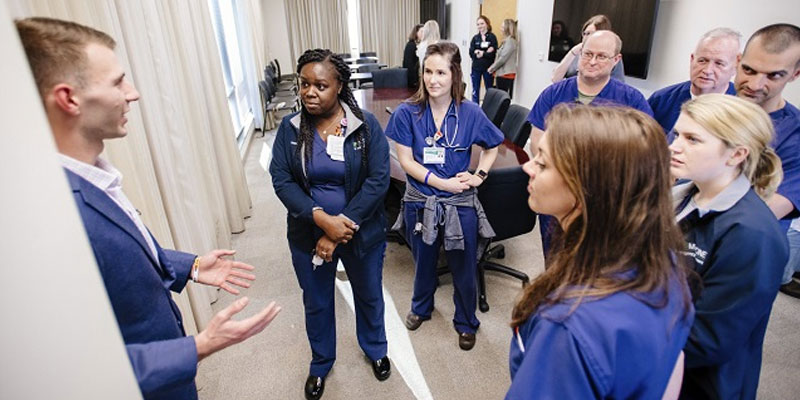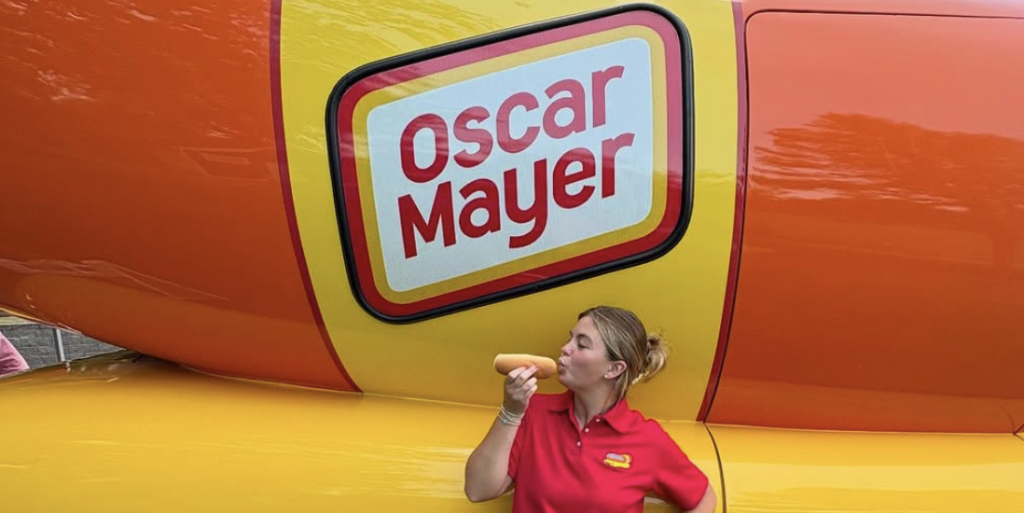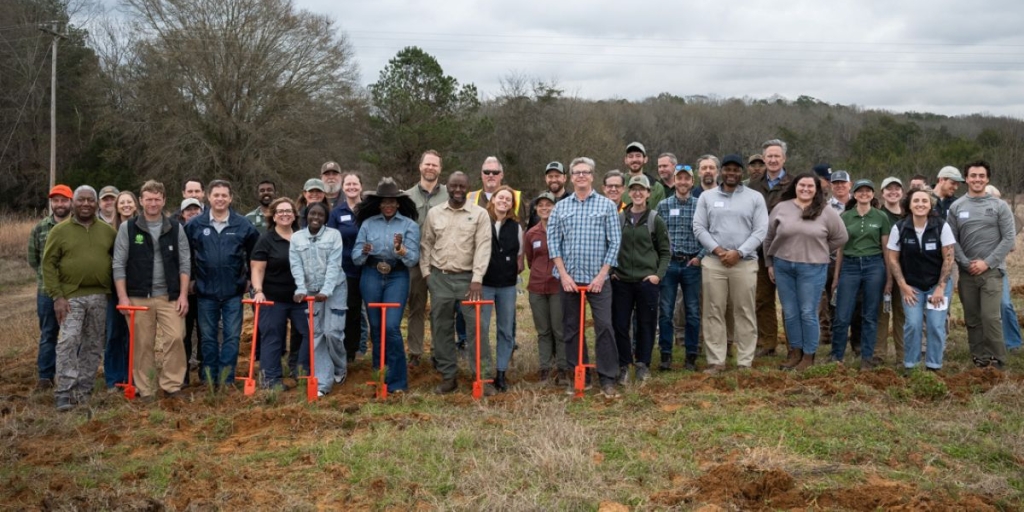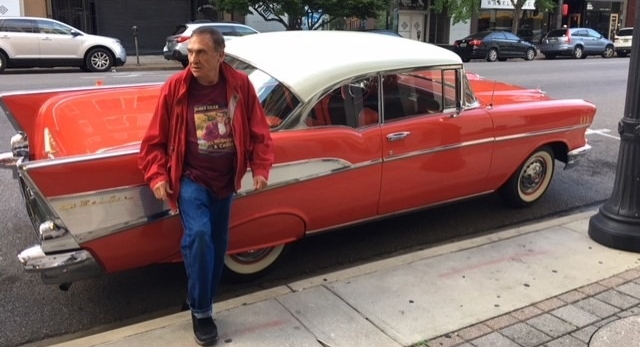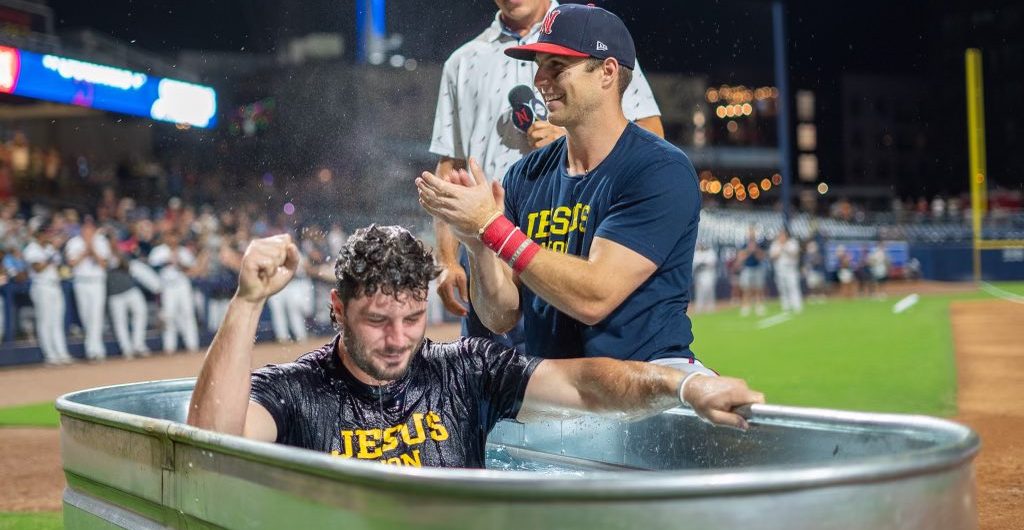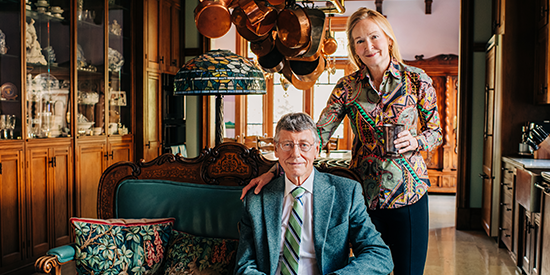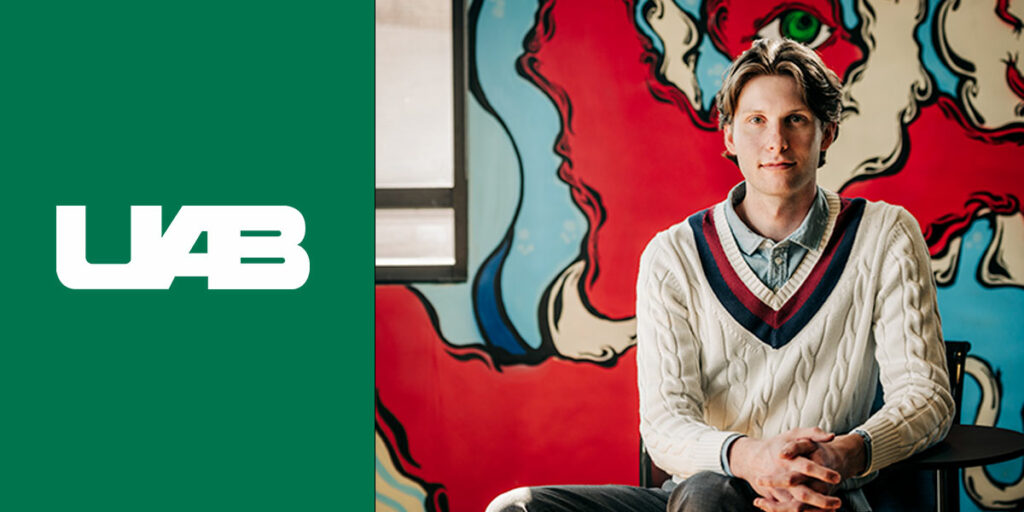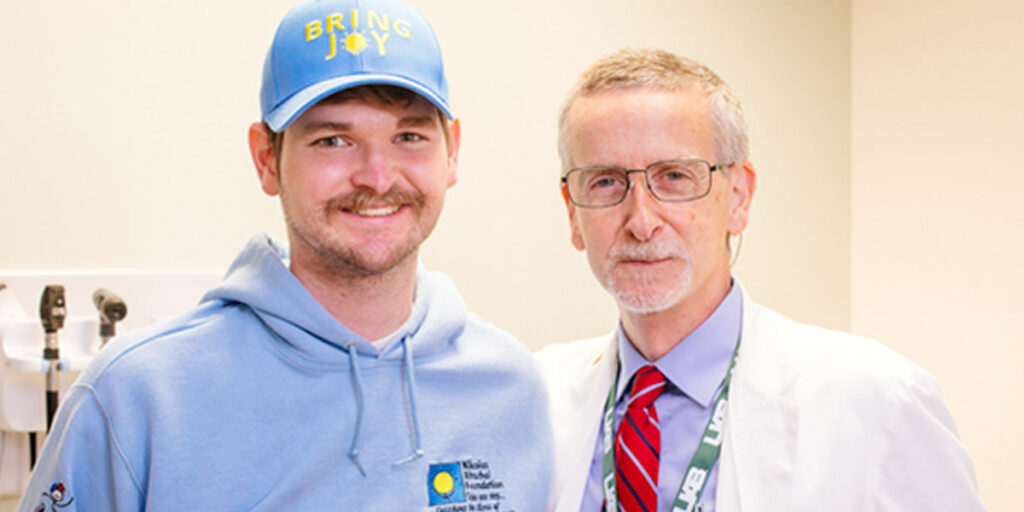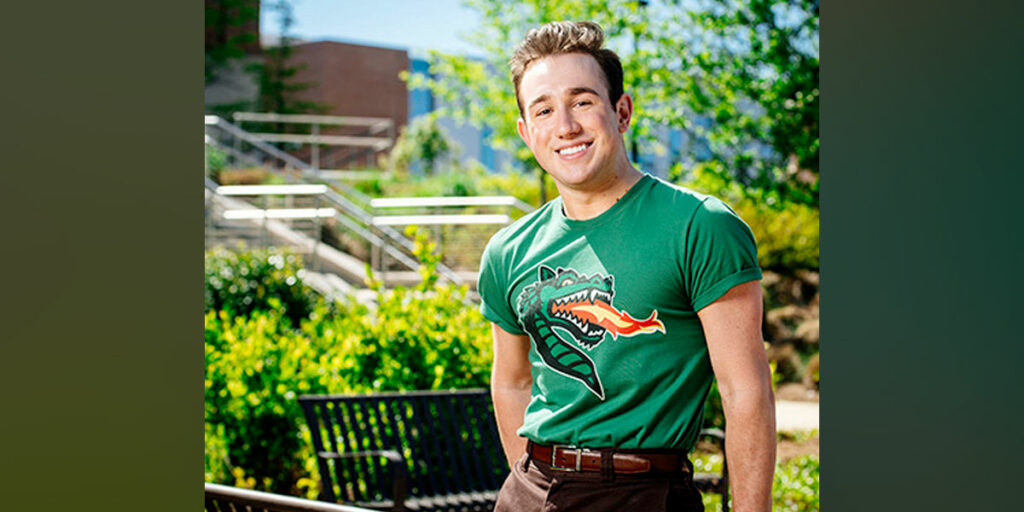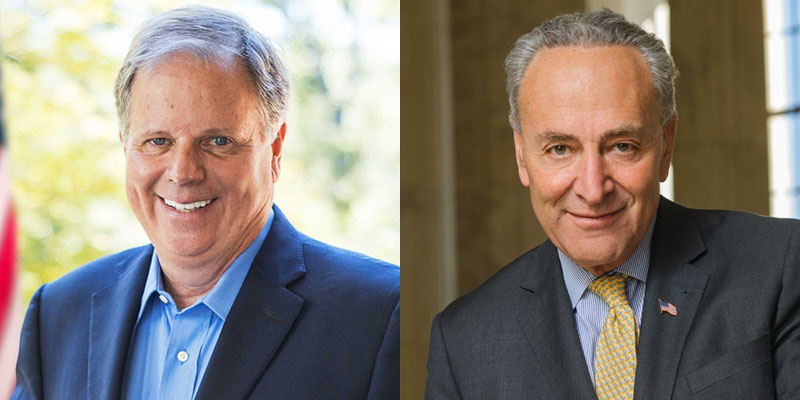On May 24, 2018, Cole Burton stood along a road cut through the heart of Red Mountain in Birmingham. He and his fellow students from an Auburn University geology class were studying formations in the rock exposed when the road was dug.
Burton took a moment to gaze to the north, over the sprawling campus of the University of Alabama at Birmingham in the valley below. His eyes settled on the buildings of UAB Hospital. Little did he know that, in just a few short hours, he would be offloaded from a helicopter on the hospital rooftop, clinging to life.
Following their Red Mountain investigations, the class proceeded to Glencoe, near Gadsden.
“We were walking on the side of the road,” Burton recalled. “My friend Nick Hood and I were both hit by an impaired driver who may have overcorrected and lost control of their vehicle.”
Both were airlifted to the UAB Trauma Center. Burton had a traumatic brain injury (TBI), broken bones, bruised lungs and a tear in his small intestine that required emergency surgery.
“The TBI and the intestinal tear were life-threatening injuries,” said Parker Hu, M.D., the UAB trauma surgeon who spearheaded Burton’s care. “He was comatose upon arrival here and placed on mechanical ventilation.”
Hood, unfortunately, did not survive. UAB physicians were not sure Burton would, either.
“Brain injuries are hard to predict,” Hu said. “Most of the time, people with the kinds of injuries Cole had sustained never wake up, or they wake up different. Some have physical or cognitive impairment, or their personalities change. A large part of his recovery was the question of whether he would wake up or not.”
Hu and the other UAB surgeons from the Department of Neurosurgery who treated Burton were honest with the family, telling them the outlook was not good. Burton’s parents, Charlie and Tina, and his younger sister, Libba, understood. But they also understood Cole’s strength and will to live.
“We believe that, with God, all things are possible,” Charlie Burton said. “We asked the doctors to continue treating Cole as if recovery were likely, and we would continue to pray.”
“Being in intensive care is a roller-coaster ride,” Tina Burton said. “One step forward, then one step back. You get off a ventilator, then have a setback and go back on the vent. We understand that’s part of the process, but it’s difficult.”
The situation took a toll on the family. Charlie and Tina stayed at the ICU virtually nonstop. Libba, a freshman at Troy University, made sure they took care of themselves during the process.
“I was leaning into going into nursing already, and I guess that took over,” she recalled. “In a way, it was easier on me than it was on my parents. I tried to be the strong one, and the UAB nurses who took care of Cole and the rest of us inspired me to really want to be a nurse.”
Slowly, Burton responded. He came out of the coma on June 15, three weeks after the injury.
“While Cole’s prognosis was poor, we know that it’s possible for patients to have a full recovery,” Hu said. “For Cole to wake up and still be Cole was remarkable. We can’t predict which patient might have that kind of recovery; that’s why we do the best we can for every patient in our care.”
Relearning how to live
Coming out of the coma was not the end of Burton’s recovery. He had to relearn how to accomplish even simple tasks such as talking, walking and eating. On discharge from UAB just over a month after the injury, his family moved him to the Shepherd Center in Atlanta for rehabilitation.
Two months of inpatient, six months of outpatient and an additional six months of intense personalized physical therapy later, followed by a return to classes at Auburn, Burton came back to UAB for a visit – a visit that confirmed Hu’s statement that “Cole is still Cole.”
The whole Burton family came to the hospital just before Thanksgiving to reconnect with hospital staff and to say thank you to the physicians, nurses, therapists and all other hospital professionals who played a role in Burton’s recovery.
As Burton toured the emergency department, ICU and the UAB helipad, the casual observer would see no evidence that there had ever been a question of whether he would wake up.
“I set the bar high for myself,” Burton said. “I have long-term goals from before the injury that are still the same and short-term goals to help achieve them. Having a goal is very important for recovery.”
The long-term goal? A career as an officer in the U.S. Navy. Burton was, and still is, active in Navy ROTC at Auburn.
“I’m still actively working on rehab to pass the Navy physical fitness test,” Burton said. “I have to run a mile and a half in 12.5 minutes and do as many pushups and situps as I can in two minutes. I’m up to 60 pushups and 85 situps so far.”
Burton ran in the Peachtree 10K road race this summer. Last year, he watched from a wheelchair.
“The Navy has been patient, waiting on me to recover as completely as I can,” he said. “They will look at my overall fitness – academically, physically and socially – to see if I can serve.”
Burton is still working to regain complete function of his left hand, but is on pace to graduate from Auburn in December with a degree in geology. While a naval career is his first choice, Burton has a plan if that does not work out.
“I will find a way to give back in any way I can,” he said. “Use every breath I have to help others. Whether that’s in the Navy or not.”
“I don’t think there is any limit to his recovery,” Hu said. “He’s met every challenge and continues to surpass expectations. Cole personifies the reason that we work as hard as we can for all our patients. We know that patients can have great outcomes despite what look like insurmountable odds.”
“Throughout rehab, I always thought that I’d get back to where I was before; but now I think that was the wrong mindset,” Burton said. “Now I think that I will always be improving. I want to be better than I was before. If I do my best today, it won’t be my best tomorrow. The growth mindset is really important. And I think the staff at UAB helped make that mindset possible. I’m so thankful for my second chance at life.”
This story originally appeared on the University of Alabama at Birmingham’s UAB News website.
(Courtesy of Alabama NewsCenter)




